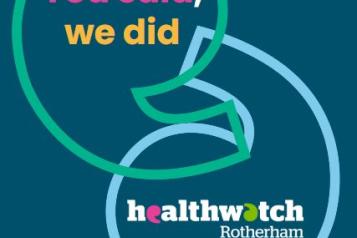Spotlight shares - August 2024
Andrea and Nicola have been out and about in the community during August gathering feedback from local people about their experiences with health and social care services in Rotherham.
Look out for them both at events coming up during September and pop along to tell them your stories.
Look out for them both at events coming up during September and pop along to tell them your stories.

Spotlight shares - August


